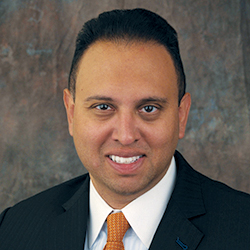By Dave Rao
Will new mandates solve an old financial problem?

Too many Americans save too little for retirement. This problem has been discussed for decades in all kinds of media, and there seems to be no easy way to solve it.
Fourteen states are giving it a try, however: they have passed or introduced laws requiring or urging companies to provide retirement savings opportunities to employees. In most of these 14 states, employers must either sponsor a retirement plan or automatically enroll their workers in a state program.1
Payroll giant ADP notes that a majority of states have considered mandatory retirement saving programs. A similar mandate is being discussed on Capitol Hill: H.R. 2954, informally called SECURE ACT 2.0, would require employers to auto-enroll employees in workplace retirement plans. This bill stalled in Congress in 2021, but the House and Senate are likely to revisit it this year.2,3
California and New York are among the states now stipulating worker enrollment. By June 30, any private employer in California with more than five full-time employees (FTEs) must offer those FTEs a retirement savings program, enroll them in the new CalSavers retirement plan or face fines after 90 days of noncompliance. New York now requires most businesses and nonprofits with 10 or more employees to either provide retirement savings choices or auto-enroll them in the New York State Secure Choice Savings Program.1,4 In Vermont and Washington, the employer mandate is voluntary. In all 14 states, employees have the right to opt out of the state-run retirement programs.1
Will efforts like this solve the problem of inadequate retirement saving? Not entirely. Only about 50% of Americans participate in employer-sponsored retirement programs. Tens of millions of Americans lack access to any kind of retirement plan.5
Even if SECURE Act 2.0 becomes law, its automatic enrollment stipulation would not be retroactive. Automatic enrollment would only be a requirement for new workplace retirement plans, not those created in the past. It could also allow employer-sponsored retirement plans to set a deferral rate as low as 3%, and many financial professionals would like to see savers direct greater percentages of their earnings toward retirement.5
The list of states with retirement program mandates either live or oncoming includes California, Colorado, Connecticut, Illinois, Maine, Maryland, Massachusetts, New Jersey, New Mexico, New York, Oregon, Vermont, Virginia and Washington. Twenty-one other states have introduced bills into their legislatures that could create similar requirements.1
Dave B. Rao is the founder of RAO Wealth Partners. He focuses his practice on helping to advise physicians, corporate executives and business owners on their unique financial situations. For more info, visit raowp.com.
References
- Nasdaq.com, Jan. 12, 2022
- ADP, Jan. 30, 2022
- Barron’s, Jan. 3, 2022
- National Law Review, Oct. 29, 2021
- MarketWatch, March 31, 2021
Our firm does not render legal or tax advice. This article was written for our firm and provided courtesy of MarketingPro. Investments in securities and insurance products are NOT FDIC-INSURED/NOT-BANK GUARANTEED/MAY LOSE VALUE. Securities and advisory services offered through Nations Financial Group Inc. (NFGI), member FINRA/SIPC, a Registered Investment Adviser. 4000 River Ridge Drive NE, Cedar Rapids, IA, 52402. Dave Rao is a Registered Representative of NFGI. Rao Wealth Partners is an independent firm and not affiliated with NFGI. First Clearing carries your account and acts as your custodian for funds and securities deposited directly by you, through NFGI, or as a result of transactions it processes for your account. First Clearing is a trade name used by Wells Fargo Clearing Services LLC, Member SIPC, a registered broker-dealer and non-bank affiliate of Wells Fargo & Company.
Source: MD News February 2022, Long Island Edition
